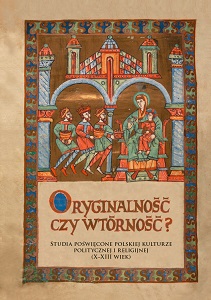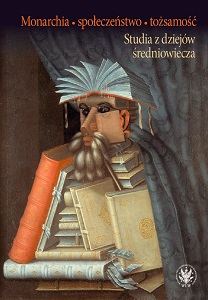
Oryginalność i wtórność wczesnej polskiej hagiografii (do końca XIII w.) – wybrane problemy
This article explores the early Polish hagiography from various angles. The first is quantitative and chronological, and concerns both the number of compositions and the extant manuscripts. Differentiating between Ottonian hagiography concerning Poland (BHL 37–39, 1147) and later texts composed locally, the article defines “Polish hagiography” as a literary product directed at the local reader. This overview points to local hagiography being relatively late and modest, but somewhat comparable with Central European and Scandinavian efforts. The question of putative “lost” hagiographical texts is also given a brief treatment here. The first tentative traces (individual miracle stories) as well as the first substantial text (Tempore illo, BHL 42) originate in the 12th century. This as well as the production that followed (especially St Adalbert: BHL 43–45; St Stanisław: BHL 7832–5) are in turn presented qualitatively, and compared to hagiographical pieces written in Central Europe at the time. They are presented against the background of the rising historical consciousness (a need for explaining traditions, institutional genesis, etc.) as well as the development of abbreviated legendaria (most of those texts survive as local additions to Legenda Aurea). Finally, the article aims to describe the Polish hagiography using categories introduced by Lars B. Mortensen, which allow to overcome the originality–imitation opposition as well as to question the centre–periphery model.
More...
